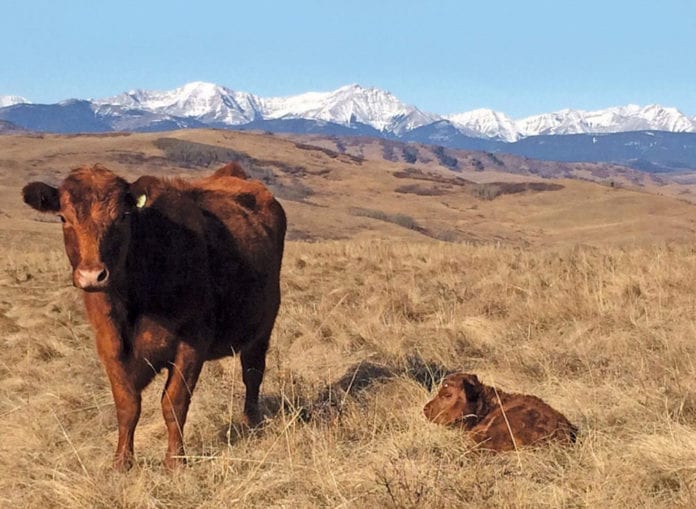Chef Ryan Lister of Liberty Commons in Toronto knows his meat. Growing up in rural England, mass-produced supermarket fare was rarely featured on his family’s dinner table. Now, at Liberty Commons — a collaboration between Oliver & Bonacini Hospitality and Big Rock Brewery — he takes gastropub favourites to a new level. In addition to updated pub fare, Liberty Commons features an extensive house-made barbecue menu.
F&H chatted with chef Lister about sourcing the best cuts of meat for a high-volume, casual eatery as well as how to stay within your ethics (and budget) when you feature a meat-centric menu.
What is the concept behind Liberty Commons?
Liberty Commons is a Canadian gastropub in the heart of Toronto’s Liberty Village Working with local farms, Canadian fisheries and other farms across the country, Liberty Commons serves seasonal and well-thought-out food that complements imaginative Big Rock beers made in our in-pub microbrewery. All this is paired with top-notch service, so whether you’re stopping by for a pint, pre-game burger or sit-down dinner, you go home feeling satisfied and well taken care of.
Liberty Commons is big on two things – great beer and great, hearty food. Is this an amalgamation of your own personal approach to hospitality?
As a young man in England, I would often find myself popping down to the pub with my Dad to have a beer and some good pub grub. Great food doesn’t have to be accompanied by fancy tablecloths and wine. Some of my favourite food memories have been while wearing a hoodie and converse, sipping on pint of beer. Sometimes, there’s nothing better than great beer and hearty food. That said, executing pub food isn’t easy. It takes a lot of maturity to serve humble food while paying attention to the small details in dishes and the quality of your ingredients. Otherwise, you’re just serving food that could be made by anyone.
Meat is a huge component of your menu at Liberty Commons. As a chef, are you concerned about the ethics surrounding meat production?
People love meat — especially beef, pork and chicken. I’ve seen the unsettling documentaries and YouTube videos surrounding meat production. It can be horrific. That said, in both my career and home life I’ve tried hard to not work with or purchase meat from those kinds of poorly operated production factories. More and more, I find people are trying to do better by the animals when it comes to the life they live and what they are fed until slaughter. I try my best to work with people who can show and inform me of where my meat and fish come from. I especially find that fish is so often forgotten when it comes to mass production. At the end of the day, I’m not a monster — I do care how the animals are treated before we eat them. If I can’t get all the information, it really does bother me deep down and those bad videos can be haunting to my attitude towards meat and fish.
What types of meat do you use at Liberty Commons and how are they sourced?
I have colleagues and industry friends who have helped me source thoughtfully and smartly. First off, Oliver & Bonacini district executive chef John Horne introduced me to many great suppliers in the meat and fish world in Canada. We use P.E.I. grass-fed briskets and local baby-back pork ribs supplied by Marco at Prime Meats. Sometimes our briskets and our flat-iron steaks are from Nick Gordon with Penokean Hills Farm in Sault Ste. Marie, Ont. Our chicken and turkey are from Maple Leaf Farms near Brampton, Ont. We also work with Nancy and Richard Self, who own Tamarack Farms in Northumberland County, Ont., supplying us with pasture-raised whole pigs, lamb and mutton. For fish, we work with Daily Seafood in Toronto and Steve Johansen from Organic Ocean in B.C. We also work with Paul Sawtell and his team at 100km Foods, who work with many local farms such as King Cole Ducks, VG Meats, Planet Shrimp and many more.
Do you feel the quality of meat is better when the animal has lived a happier life?
I’m not sure a happier life necessarily leads to tastier meat but, we all have emotions, right? I cook and eat with emotion just like my mum, dad and grandparents. If the animal has been cooped up in a feedlot and not able to move about and being fattened up with all kinds of everything, I’m not going to enjoy cooking or eating it. I’d rather eat super-tasty vegetables and grains to get my protein fix.
Canada’s updated Food Guide has made it clear animal proteins should only be eaten in small quantities — do you think this will benefit the ethical-meat movement?
This will benefit the ethical-meat movement. These huge production facilities were originally created in order to feed the ravenous meat eaters out there. I’m not hating on these people, as we all have the right to eat what we want. But for myself, I’d much rather eat a grass-fed Penokean Hills 6oz flat iron steak paired with some proper tasty local veggies from the farm, than a ginormous 16oz rib eye steak. We’re trending towards a more moderate approach to eating meat, in that more people are opting to enjoy smaller portions less often. For me, it’s always going to be quality over quantity.




















